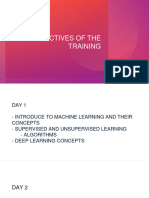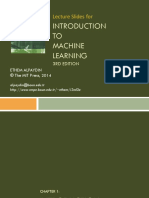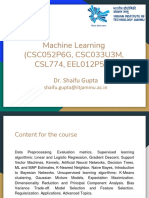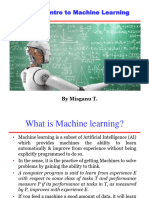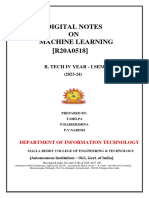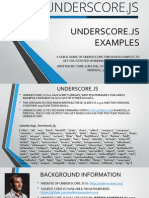0% found this document useful (0 votes)
115 views2 pagesA Course in Machine Learning
This document describes A Course in Machine Learning (CIML), a set of introductory machine learning materials that covers major aspects of modern machine learning like supervised learning, unsupervised learning, and probabilistic modeling. The materials can be used for both undergraduate and graduate courses. The book and individual chapters can be purchased or downloaded. Support is provided through a mailing list and bug reports.
Uploaded by
Gopi KomanduriCopyright
© © All Rights Reserved
We take content rights seriously. If you suspect this is your content, claim it here.
Available Formats
Download as PDF, TXT or read online on Scribd
0% found this document useful (0 votes)
115 views2 pagesA Course in Machine Learning
This document describes A Course in Machine Learning (CIML), a set of introductory machine learning materials that covers major aspects of modern machine learning like supervised learning, unsupervised learning, and probabilistic modeling. The materials can be used for both undergraduate and graduate courses. The book and individual chapters can be purchased or downloaded. Support is provided through a mailing list and bug reports.
Uploaded by
Gopi KomanduriCopyright
© © All Rights Reserved
We take content rights seriously. If you suspect this is your content, claim it here.
Available Formats
Download as PDF, TXT or read online on Scribd
/ 2








